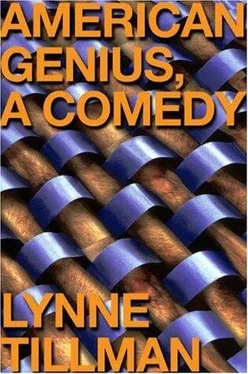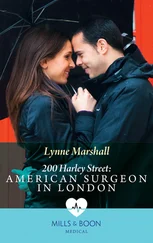In another place I lived for some months, in the South, near to former, thriving plantations on which cotton was picked by enslaved Africans, there was a florid-faced man who'd been a farmer, and in his late sixties, after retirement, decided to learn massage therapy, so he went to school and once a week offered his novice services free to everyone in the small town. I offered myself regularly to him. His farmer's hands were rough and big as hams, he read the Bible daily, he moved fastidiously, he kept the room very warm, and every time he worked on me, also very slowly, I melted into the professional table he brought with him, and under his rough-skinned, gentle hands and fresh sheets smelling of wildflowers his wife laundered, I let my mind wander as far as it could, since I mean always to untether it from its ordinary course, but habits were established early, in the neural routes of the brain, about which I had no choice. The apprentice masseur spent hours on me practicing his trade, and his efforts tired me, but also I had hardly a care in the world by the time he finished, and the big, tender man was also exhausted, when darkness had fallen in the place where wildflowers sprouted, bloomed in abundance, and the air smelled sweeter than the freshly laundered sheets, and no more was expected of either of us. I could return to my home, careful to avoid a man who, because I refused his seduction, would later take revenge, though I didn't know that then, when my fate was, in some way, enjoined to his unfulfilled, temporary desire. I remember the masseur's hulk, his benign face and large frame, I can assemble the sweet infinitude of those long nights in that overheated room where he practiced on me, where his tender concern and his religious convictions showed themselves, by acknowledging, in long, stroking motions and studious pummeling, his belief that the body was holy.
Today I'm determined to walk briskly and avoid the main house and to keep to the road. I wonder if facing the traffic, when it rounds the bend, or having my back to it, is safer, as I also watch for deer, birds, squirrels, and wild turkeys. If it is 3 p.m., the yellow schoolbus will wind around the road and drop off children, big and little, in a familiar scene that verges on a gluttonous, almost pornographic sentimentalism, so I hope to make my way to town before its nostalgic appearance. It is probably 2:00, not even, and there is hardly a car that passes and only a few trucks, and by the side of the road beer cans and used condoms are strewn, but not too many, and sometimes from the thick forest a hidden animal moans or a bird sings or screeches, or the trees and branches, some bare, shake from a sudden breeze, but it is mostly remarkably quiet. I can hear my heart beat and my second heart contract, and also hear my breathing, which I adjust to my steps, in, step; out, step; in, step; out, step, and while I try not to worry, only to breathe in and out, to think, what a day, since it is a beautiful day, but I do worry, also about how well I'm breathing. I keep up a pace but am passed by two women jogging who wave exuberantly; by the tall balding man running even faster, with his mouth hanging open, so he looks vulnerable and stupid, when he is neither; then the kitchen helper, who whizzes by on his bicycle, hits the brakes, turns to look at me, gets off, and stops to talk. Now I remember that I appear to be something.
— How you doing? he asks.
He kicks his bicycle tire.
— OK, I say.
— How was lunch?
— Spaghetti in cold tomato soup.
He laughs.
— What are you going to do in town? he asks.
— I need something, I needed a walk. Then I might have a coffee. Nothing much.
— Me too. Nothing. I'm going to hang out, then go home.
— Have fun.
— Yeah, you too. Bye.
— Bye. See you tomorrow.
I'm busy ignoring his long legs, I do want to buy something, and also I hunger for the taste of coffee and its pungent aroma, though I don't often drink coffee, and he rides off, jauntily, and I breathe again and march on, shaking my underexercised arms which hang from my sides uselessly, and realize the sun is strong for this time of day and season. The tall, old fir trees block its rays, and, when they don't, it casts a brilliant swath on the darkened road. Two chipmunks scurry across, darting forward then freezing in the middle of the two-lane blacktop road, but each scrambles to safety, and a bearded man drives up in an old pickup truck, rolls down his window to ask directions I can't give, but doesn't make small talk, and I go on. I pass the high school. Luckily the students are still inside, it may even be earlier than I thought, so I don't have to watch them flee its corridors, burst out of swinging doors, yelling and whooping, to escape into a transient liberation, or see mothers and a few fathers waiting for them, recalling a similar time in my life, which is present under my skin and which no massage releases. I don't need anything, but I'm at the perimeter of the town whose quaint buildings and shops appeal to locals as well as tourists, since it's old and celebrated for its early American history that the townsfolk superintend like a garden, the way Richard II didn't tend his, but I don't know why Richard II occurs again to me, when Richard III is more convenient, since this may be the winter of our discontent, or at least mine.
The battleship-gray cashmere scarf, wrapped around my neck, of fine soft wool from the undercoat of a cashmere goat, anomalously tickles the areas where yesterday the massage therapist pressed persistent knots and pummeled ropey fibers and, when she did, arcane images popped up, but I can't recall them. I stroll past a waterfall, though it's not the fastest route, since I'm trying to appreciate natural settings, but as I walk past, I forget the waterfall, since I'm easily distracted, and instead visualize the Count, who must be sleeping, and who, when he arrived, his darkbrown, thinning hair tousled, wore around his neck an antique timepiece that, I learned, was valuable and rare, and at which he looked with concern during the first dinner, sometimes the best meal of the day, but inconsistent. The regard he showed it was superior to his apparent feeling for anything or anyone else, but then he stopped wearing it, suddenly, and carried instead a pocket-watch that he took out gently, considering its face as I might a photograph of a dead friend. He was never rude. As I came to know him, he declared scant passion except for his timepieces, caring more about time in the abstract, its formation of daily life, and the watches and clocks by which regulation was set and followed, than anyone I have ever known or probably will know. The Count is a reticent polymath and keeps secrets the way a fine timepiece does time, quietly and in a subdued fashion, though about some he was profligate, like telling me early in our acquaintance that he was married, in a way, as he put it, but then never mentioned his wife and set a question in motion, maybe guilelessly, but perhaps there was something I just hadn't noticed. As I strolled past the waterfall that I also hadn't noticed, I reconsidered the words on a plaque near the entrance to the town: "The spirit of liberty spread where it was not intended. "-John Adams
The kitchen helper's bicycle is thrown on the ground in front of the cafe I don't usually frequent, so he's there, and I could talk with him, learn what makes him tick, as my father liked to say, though that would be more literally true for the Count, and near this cafe is the town's sole antique and thrift store, which I enter instead, in hopes of finding something, if only a trinket or a dainty teacup. The shopkeeper glances up from behind a glass vitrine or cabinet, which houses an assortment of Americana and small, mostly brown or rusty objects, all of which seem dirty but may be relatively old, to note my appearance and bellows hello, because people are friendly here, though not as welcoming to guests as Greeks, whose love of strangers is the basis of their generous hospitality, or philoxenia, of which I have sometimes been the grateful object. I head for the shelves of used books, which I know well, since I walk to town about three times a week, and mostly they won't have changed, though a new one might have been inserted yesterday, or I could notice one I hadn't, the way I didn't notice the waterfall as I walked past, absorbed elsewhere, and today my eye lands on a hook about the origins of the English language, in which I could learn about runic writing, for instance, but I first open to a chart, "The Organs of Speech," which diagrams the mouth, epiglottis, uvula, hard palate, parts of tongue, larynx and vocal cords, and so on, whose terms connect to places in me, and, also, to those of the demanding man, whose tongue is coated with nicotine slime, and suddenly my second heart is discomforted. The origin of the word "skin," like most beginning with "sk," is Scandinavian, skin is a loanword, and there are many such in English, and I wonder if when you borrow words, you return them in any sense. The kitchen helper has flawless skin. In adolescence, my dermatologist taught me, acne can deform the course of a young person's life so badly that its physical traces will be less severe even than its psychic scars, though its physical effects may be visible for years. Actors who play villains often have pockmarked skin. Acne vulgaris occurs primarily in the oily or seborrheic areas of the skin, and in severe cases, even the ears may be involved, with large comedones in the concha and cysts in the lobes; the comedo, commonly known as the blackhead, is the basic lesion in acne, produced by the faulty function of the sebaceous follicular orifice, when the plugging produced by the comedo dilates the mouth of the folicule and papules are formed by inflammation around the comedones. Atrophic acne is characterized by tiny residual atrophic pits and scars from deeply involved papular acne. My dermatologist insists acne is the single greatest cause of neurosis and distress in teenagers and young adults, but the kitchen helper's skin is free of depressions, pits, scars, and bloody wounds, and he clearly didn't and doesn't, the way some do, usually women, pick at his skin, a neurotic excoriation or self-induced illness, also known as dermatitis artefacta. The kitchen helper drinks beer, cokes, and eats chocolate, and is remarkably unmarred by what he ingests, as his genes have set his skin's design at least as much as his diet and environment, so he can guzzle all the Cokes he wants and never suffer unsightly pimples, though his teeth may be rotten.
Читать дальше












